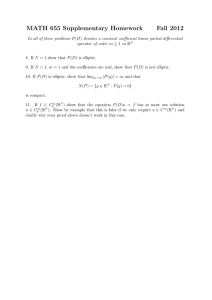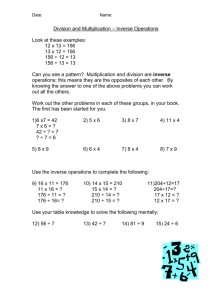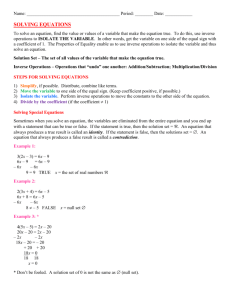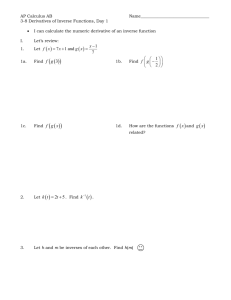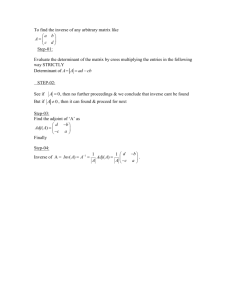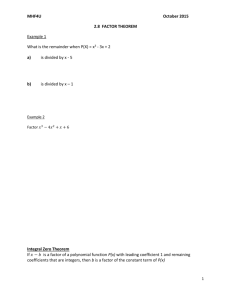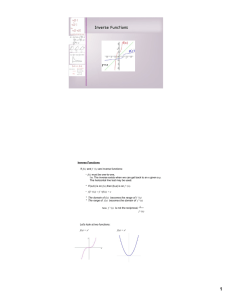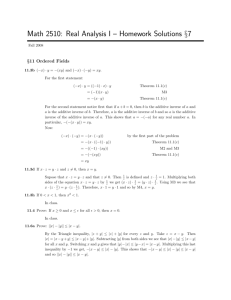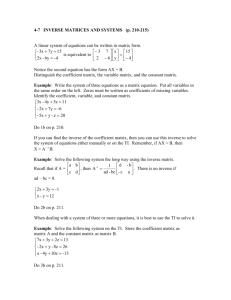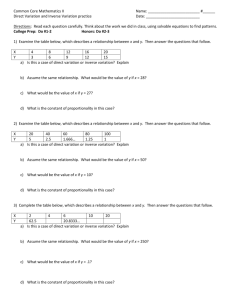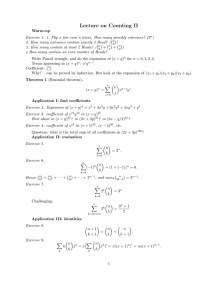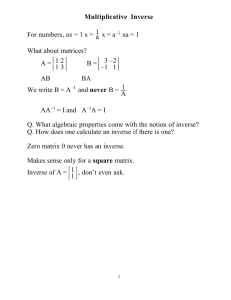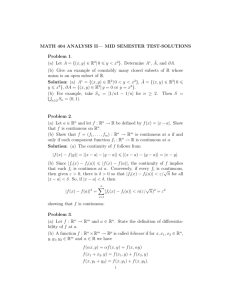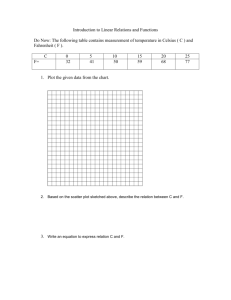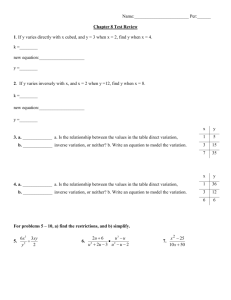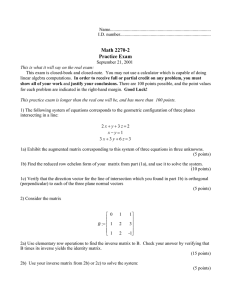AN INVERSE PROBLEM FOR ELLIPTIC EQUATION WITH AN
advertisement
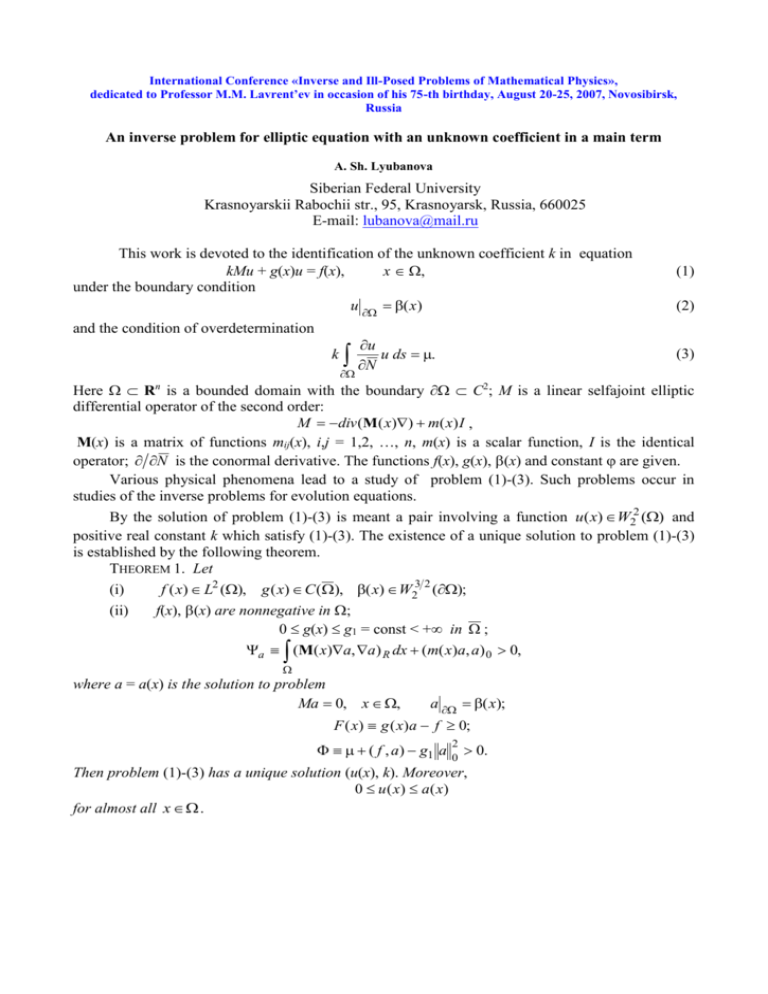
International Conference «Inverse and Ill-Posed Problems of Mathematical Physics», dedicated to Professor M.M. Lavrent’ev in occasion of his 75-th birthday, August 20-25, 2007, Novosibirsk, Russia An inverse problem for elliptic equation with an unknown coefficient in a main term A. Sh. Lyubanova Siberian Federal University Krasnoyarskii Rabochii str., 95, Krasnoyarsk, Russia, 660025 E-mail: lubanova@mail.ru This work is devoted to the identification of the unknown coefficient k in equation kMu + g(x)u = f(x), x , under the boundary condition u (x) and the condition of overdetermination k u N u ds . (1) (2) (3) Here R is a bounded domain with the boundary C2; M is a linear selfajoint elliptic differential operator of the second order: M div (M ( x)) m( x) I , M(x) is a matrix of functions mij(x), i,j = 1,2, …, n, m(x) is a scalar function, I is the identical operator; N is the conormal derivative. The functions f(x), g(x), (x) and constant are given. Various physical phenomena lead to a study of problem (1)-(3). Such problems occur in studies of the inverse problems for evolution equations. By the solution of problem (1)-(3) is meant a pair involving a function u( x) W22 () and positive real constant k which satisfy (1)-(3). The existence of a unique solution to problem (1)-(3) is established by the following theorem. THEOREM 1. Let (i) f ( x) L2 (), g ( x) C (), ( x) W23 2 (); (ii) f(x), (x) are nonnegative in ; 0 g(x) g1 = const < + in ; a (M( x)a, a) R dx (m( x)a, a) 0 0, n where a = a(x) is the solution to problem Ma 0, x , a ( x); F ( x) g ( x)a f 0; ( f , a) g1 a 2 0 0. Then problem (1)-(3) has a unique solution (u(x), k). Moreover, 0 u ( x) a ( x) for almost all x .

